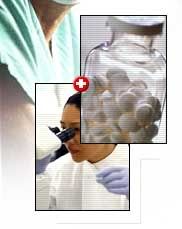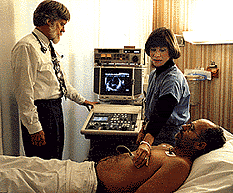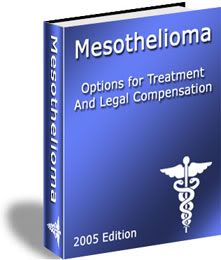Advances in the diagnosis, evaluation, and management of malignant pleural mesothelioma.
Title
Advances in the diagnosis, evaluation, and management of malignant pleural mesothelioma.
Source
Respirology. 10(3):266-83, 2005 Jun.
Respirology. 10(3):266-83, 2005 Jun.
Malignant mesothelioma is an insidious neoplasm arising from the mesothelial surfaces of the pleural and peritoneal cavities, the pericardium, or the tunica vaginalis. A total of 80% of all cases are pleural in origin. The predominant cause of malignant mesothelioma is inhalational exposure to asbestos, although evidence is increasing to support the hypothesis that simian virus-40 virus plays a role in cocarcinogenesis. Immunohistochemical markers such as calretinin, WT-1, and cytokeratin 5/6 are becoming established diagnostic markers.
Preliminary data suggests that a soluble form of mesothelin could serve as a serum marker for established and early cases of mesothelioma. Positron emission tomography with 18-fluorodeoxyglucose in conjunction with computed tomograhy scanning has improved preoperative imaging and staging. Prognostic factors have been identified and verified. Negative indicators include thrombocytosis, high leukocyte counts, poor performance status, and nonepithelial histology. For the first time, there is now evidence that some treatments are increasing the quality and quantity of life for patients with mesothelioma. Chemotherapy, with the new multi-targeted antifolate drug Pemetrexed, combined with cisplatin, has shown superior survival rates in a large phase III trial when compared to cisplatin alone. High-dose intensity-modulated radiotherapy when administered after extrapleural pneumonectomy has resulted in excellent local control. Multimodality treatment programs that combine surgical cytoreduction with novel forms of radiation therapy and more effective chemotherapy combinations may offer significant increases in survival for certain subgroups of mesothelioma patients. Innovative palliative approaches have proved successful in alleviation of the significant symptoms experienced by many mesothelioma patients.
Experimental treatments such as immunotherapy and gene therapy present a window of hope for all mesothelioma patients, and in the future, may be combined with 'standard therapy' in multimodality protocols. Patients with adequate performance status should be enrolled into clinical trials where possible. Over the past decade, significant advances have been made on several fronts that have improved the ability to diagnose a stage, define prognosis, and treat malignant pleural mesothelioma.




2 Comments:
http://mesothelioma--mesothelioma.blogspot.com
Help Me Im IN DEBT
Are you tired of hearing those words. Are you tired of your boss and the people at your work . Looking for a opportunitiy to real home based business opportunity.
Post a Comment
<< Home